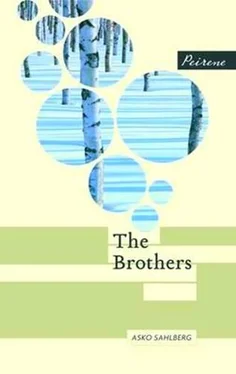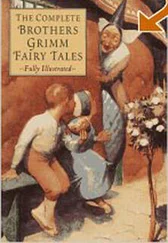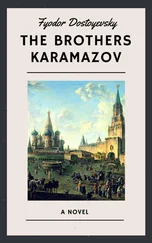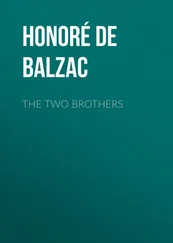‘Is he outside?’ the Old Mistress asks behind my back.
The one good thing about this house is that sooner or later you learn not to start. ‘He went out just now.’
‘Where’s the Farmhand?’
‘In the yard. They were talking out there.’
‘Did you hear what they were saying?’
‘No.’
In her own room she always moves heavily, but elsewhere in the house she is quiet; the pantry door seems to creak open by itself. ‘Right. You shouldn’t listen to men.’
I know full well that not all of the bottles are in the drawing room. They have been hidden all over the house. She wanders between them during the day as if she were dutifully following a set path. And yet she no longer hides it, at least not from me, not any more. She has tired of concealment a little like I have tired of drawing a comb fifty times through my hair every night, or washing between my legs. When things grow useless, you let them go.
‘You want some?’
‘Is it the strong stuff?’
A knock, as glass hits the table. ‘No.’
‘I’ll have a small one. Although my hands are covered in dough.’
‘No matter.’
When I turn round, she pours the drink into two small glasses. The sound is like a frog diving. I sit down opposite her. She looks at me between the eyes, drowsily benign yet vacant. This tells me that today, everything’s different. I wait until she has raised her glass to her lips before I wet my own with the revolting liquor. I taste what she is tasting. For a moment I have her mouth, old, doughy and sour.
‘Would you like to go on a trip to Turku?’ she asks.
I am so surprised that I am nearly lost for words. ‘Turku? Me?’
‘Yes. I don’t suppose you’ve ever been there.’
‘I haven’t. Vaasa, yes, but Turku, never.’
‘Good. In that case, you need to pay it a visit. Of course, there are more magnificent towns in the world, but you’ve not seen it and I’d like to see it again.’ She rests her elbows on the table and leans her pale cheek against her palm, through which her voice now speaks: ‘It’s been a long time since I went to that town. It was before Arvid became sick. You were just a little girl then.’
I do not know what to say, so I say nothing.
‘I should never have left. That wasn’t the plan. We had a beautiful apartment and neat servants and a real piano in the drawing room. I played it when we had visitors.’
Her voice has softened and her eyes have gone behind a misty curtain. She shakes herself free and states, ‘But then I had to come here to tend pigs and chickens.’
‘And cows,’ I say.
She stares at me for a moment and nods. ‘And cows.’
‘Although we have a milkmaid.’
‘A milkmaid is no match for a piano.’
She is the same and yet she is not. Generally she radiates irritation even when she is trying to be friendly, but not now. She is afraid too, then. I feel the fear trying stealthily to bind us closer together. I lean further back on the bench and say, ‘It’s not good that Henrik’s here.’
‘No, it’s not good. Maybe a mother shouldn’t say such things about her son, but it’s not good.’
‘What’s going to happen?’
Her eyes change again. A moment ago, they were shaded. Now they darken, open out in the middle, become tiny black abysses which suck in the gaze. She raises her glass quickly, tips it empty and says, ‘I should go and feed the chickens.’
HENRIK
The new maid is sweeping the drawing-room floor. That dress is just asking my hand to slip underneath it. But servants and their betters should not consort with each other, not even when a man is feeling so weak or so desperate that both his reason and his pride – the same thing, basically – are compromised. She reminds me of someone, maybe that girl in those filthy quarters in Stockholm, where I had to struggle from one day to the next just to keep the shirt on my back. The days began grey and ended up black, if they ended at all and did not merely bleed miserably into each other. I do not wish to reminiscence.
‘You’re keeping the place tidy, I see,’ I say.
The girl twists round, stoat-like, lowers her gaze upon seeing me and lets out a sweet little giggle. ‘I can do that much.’
‘That’s the spirit. You should never do more than you can. It may even be better to stay a touch below the level of your maximum ability. You should never throw your ability out of the window. Someone could come and steal it.’
She stares at me stupidly with her mouth open. She shifts on her feet and licks her lips as if somebody had left honey on them in the heat of fornication. Her broad face, high cheekbones and slit-like eyes remind me of those Mongolians one saw in the streets of St Petersburg. The dress is worn but nevertheless neat and a little too tight, suitably. It is probably one of Anna’s old garments. She will no longer need it, now that she is blessed with a share in a prosperous house. I bet the girl has been recruited from the village and not from Vaasa, because we all know that rural servants are satisfied with less than hired hands from towns. Financially, they are a more sensible alternative.
‘Is this house a good place for a maid, then?’ I ask.
‘Yes, sir,’ she whimpers.
‘Not too much work?’
‘Not at all.’
I nod as I leave. ‘As I suspected.’
I take another look at her from the doorway. She is supple and light, already endowed with curves. The passage of young flesh, unaware of its future decline. Outside I naturally bump into the Farmhand, for I am used to running into bad luck. He is on his way from the shed with an armful of firewood, bare-handed and bare-headed. He must keep his shack warmer than the Russians do their saunas. He scowls at me sideways, trying to get past me, but he stops when I say, ‘You were planning to heat up your cabin.’
He is ready with his reply: ‘I won’t need such heavy blankets then.’
‘That’s handy. Particularly when you don’t need to get logs from your own forest, which would presuppose that you’ve got a forest of your own. Where have the labourers got to?’
‘The place we’ve just been talking about.’
He does make me think for a moment. ‘The forest?’
‘That’s right. They’re felling trees, though it isn’t their forest either.’
‘You didn’t think to go with them, as driver?’
‘I would have, but esteemed visitors arrived at the house. I was asked to stay put on their account.’
May the Devil take him. A parasite like him ought to be flogged on the church hill every Sabbath. The only problem is that he would probably somehow use the flogging as a means of obtaining a martyr’s crown. It is best to ignore him. I believe he ignores me, too.
I am walking along a familiar road. I once thought it safe. I did not know that it led to a dirty world. The spruce copse has become denser, they have been working on a new fence, there are no signs of war here. The air is getting cold, it eats into the skin. But this is nothing compared with the horrific winters of St Petersburg. In summer, swarms of mosquitoes, and in winter, freezing cold. That city is only a good place to live if you own a palace and a flock of lackeys who will carry logs to tiled stoves in rows of three. And yet I would go back there if I could. Not in order to be there, but in order to be far away from elsewhere.
There is my fence. It is beginning to rot, little by little. Futile, like everything I have ever done. If it is true that, after his death, a man is remembered by his achievements, I might as well refrain from kicking the bucket, because any memory of me will just spill out and trickle away. Anyway, Jansson does not need any fencing round his land. His cows have always been so inexplicably timid they are not able to muster enough courage for even a small escapade. They just stand in the safest corner of the cow enclosure staring vacantly at the house. Unless he has got a new breed, but I do not think so. All his time must go on breeding misunderstood horses and treacherous daughters.
Читать дальше












